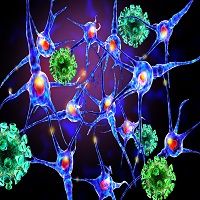Low Vitamin D Levels Associated with Multiple Sclerosis Relapses
Stepping out into the sun may be more important than ever, especially for patients with multiple sclerosis.

Stepping out into the sun may be more important than ever, especially for patients with multiple sclerosis (MS).
While the cause of the chronic disease is still unknown, researchers have identified a potential trigger and presented the findings at the 2015 American Academy of Neurology annual meeting in Washington, DC. Lead Author Stephanie Tankou, MD, and colleagues evaluated how vitamin D levels affect the gut microbiome which can ultimately cause worse MS symptoms.
“Genetic analysis on both Roche 454 and Illumina MiSeq platforms was performed at Baylor’s Alkek Center for Microbiome and Metagenomic Research,” the team wrote in the presentation.
Serum 25-OH vitamin D levels and fecal DNA were obtained from 61 patients (19 male and 42 female) from the Partners MS Center at the Brigham and Women’s Hospital. With the mean age being 47.7, the participants had been battling the disease for an average 12.8 years at the time of the study.
Previous studies have revealed that the microbiota of the gut can trigger central nervous system autoimmunity in mice with MS. This study used human participants to obtain a better understanding of vitamin D’s role in the neurological disease.
Since ruminococcaceae can produce anti-inflammatory short chain fatty acid metabolites like acetate, the investigators worked to examine its potential presence in the samples. The results showed 43 subjects had an increased abundance of ruminococcaceae when their serum vitamin D level measured above 40 ng/mL.
The team concluded that vitamin D levels cause a reaction in gut microbiome that leads to MS flare-ups which means the nutrient is a risk component of the disease.
“Further studies are underway to elucidate the mechanism by which vitamin D regulates the composition of the microbiota in MS,” the authors wrote.